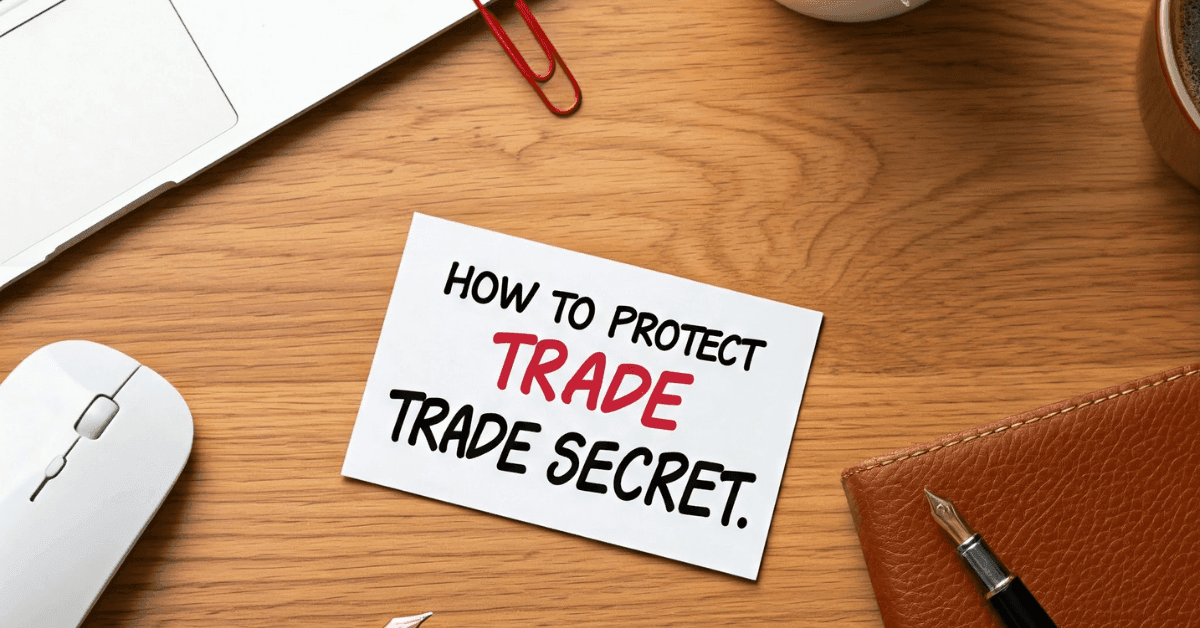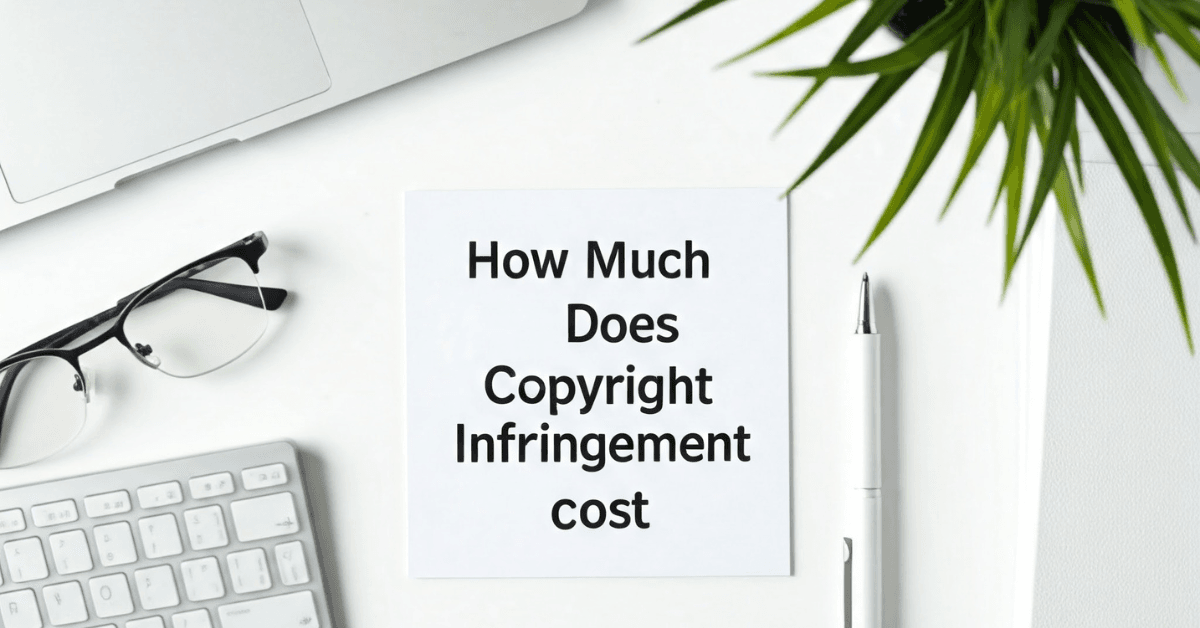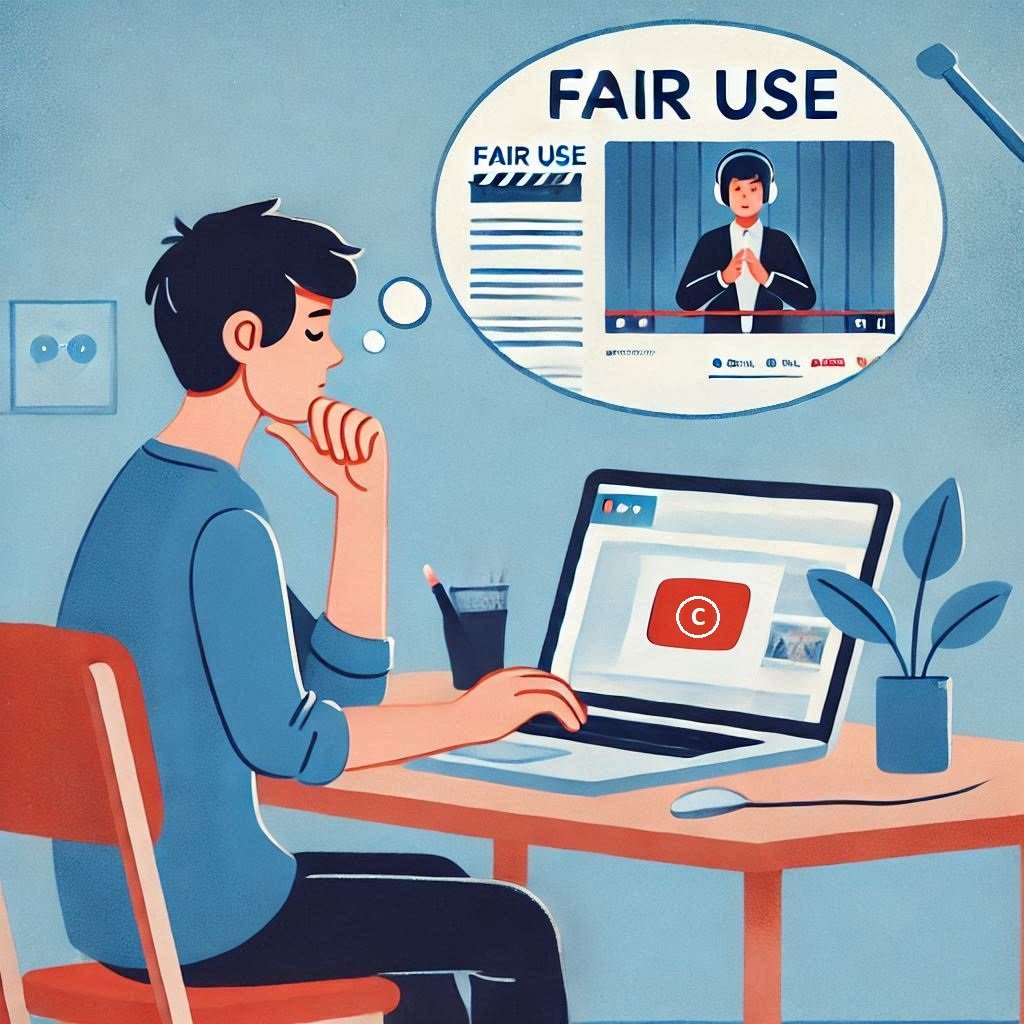Table of Contents
Introduction
Trade secrets are the backbone of many businesses. But how can companies ensure their confidential information is safe? Trade secret protection in the UAE is crucial for maintaining your business’s competitive edge.
Imagine if someone leaked Coca-Cola’s recipe—it could lose its unique selling point. Protecting trade secrets in the UAE ensures your business stays ahead in the market. This guide explains trade secrets and their protection under UAE law. It also details the steps businesses should take to secure their secrets. Continue reading to know how to protect trade secrets in the UAE in depth.
What Are Trade Secrets?
A trade secret is confidential information that gives a business an edge over competitors. This can include:
- Formulas (like a recipe for a popular drink)
- Business strategies (such as unique marketing techniques)
- Manufacturing processes (how a product is made)
A few examples of trade secrets include:
- Coca-Cola Formula: The secret recipe for Coca-Cola, known only to a few employees and kept in a secure vault.
- KFC’s Original Recipe: The blend of 11 herbs and spices in KFC’s original recipe.
- Google’s Search Algorithm: The complex algorithm that determines how search results are ranked.
How Does UAE Law Protect Trade Secrets?
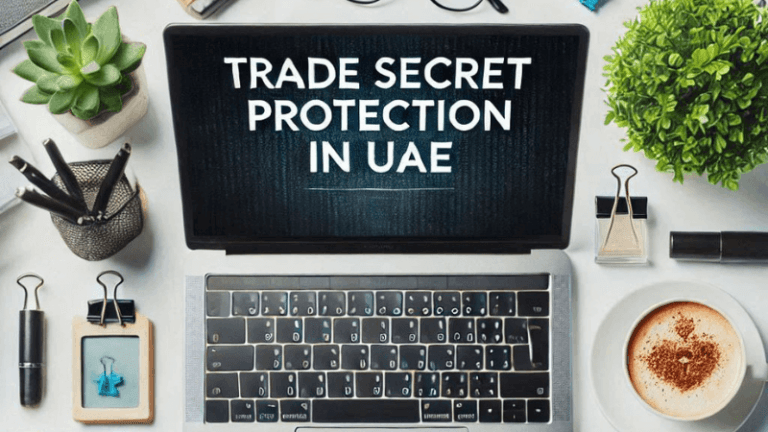
Trade secrets are crucial for business success, and UAE laws provide strong legal protection. Businesses must establish clear internal policies, use confidentiality agreements, and ensure compliance with relevant regulations to safeguard their sensitive information.
Under Federal Law No. (5) of 1985- Civil Transactions Law
1. Employee Obligations (Article 905):
- Employees must keep trade and industrial secrets.
- This obligation continues even after leaving the job.
2. Non-Compete Clause (Article 909):
- Employees with access to sensitive information can be restricted from competing with their employer after leaving.
3. Time Limit for Claims (Article 922):
- Employment contract claims must be made within one year of termination.
- However, trade secret breaches have no time limit.
Under Federal Decree-Law No. (33) of 2021- UAE Employment Law
1. Fines for Breaching Secrets (Article 59):
Disclosing work secrets can lead to fines between AED 20,000 and AED 100,000.
2. Dismissal Without Notice (Article 44):
Employers can terminate employees if they disclose trade secrets, causing losses.
3. Worker Obligations (Article 16):
Workers must not keep or share confidential work documents without permission.
4. Non-Competition Clause (Article 10):
Employers can prevent workers from competing post-employment. Restrictions must be reasonable in terms of time, place, and job type.
Under Federal Law No. 11 of 2021 – Industrial Property Law
To qualify for protection, the information must meet these conditions:
1. It Must Be Secret:
The information is not commonly known in the industry.
2. It Has Commercial Value:
The secret gives the business a competitive advantage.
3. Reasonable Efforts Are Made to Protect It:
The owner takes steps to keep it confidential (e.g., using locks, passwords, or agreements).
What Happens If Someone Misuses a Trade Secrets in UAE?
UAE law treats the misuse of trade secrets seriously. The following actions are illegal:
- Bribing employees to reveal confidential information.
- Encouraging employees to reveal information that they know from their jobs.
- Breaking Trade secret confidentiality agreements by sharing what is learned.
- Stealing information from its storage places through theft or spying.
- Using deceitful methods to obtain information.
- Using stolen information while knowing its secret nature and illegal origins.
- Any other actions that go against fair business practices.
If guilty, individuals or companies can face severe penalties.
Article 432 of the UAE Penal Law states, “If someone is trusted with a secret because of their job and they disclose it without permission, they can be jailed for at least one year and/or fined at least 20,000 AED.”. If they use the secret for personal gain, they face the same penalty.
Trade Secret Protection in the UAE Freezone
The DIFC (Dubai International Financial Centre) has its own legal framework, DIFC Law No. 4 of 2019, for the protection of trade secrets in the UAE. Here are the key points:
Misappropriation of Trade Secrets
According to Article 54 of DIFC Trade Secret Law, misappropriation of trade secret includes:
1.Acquisition by Improper Means: Misappropriation occurs if someone acquires a trade secret through improper means, such as theft, bribery, or espionage.
2.Disclosure or Use by Improper Means: If a person uses or discloses a trade secret that they acquired through improper means, it is considered misappropriation.
3. Knowledge Derived from Improper Means: Misappropriation also includes instances where a person acquires, discloses, or uses a trade secret while knowing or should have known that the trade secret:
- Came from someone who used improper means to acquire it.
- Was obtained under circumstances that created a duty to maintain its secrecy or limit its use.
- Came from someone who owed a duty to the rightful owner to keep it secret or limit its use.
4. Accidental or Mistaken Acquisition: Finally, misappropriation includes cases where a person discloses or uses a trade secret knowing, or should have known, that it was a trade secret acquired accidentally or by mistake.
How Long Does Trade Secret Protection in the UAE Last?
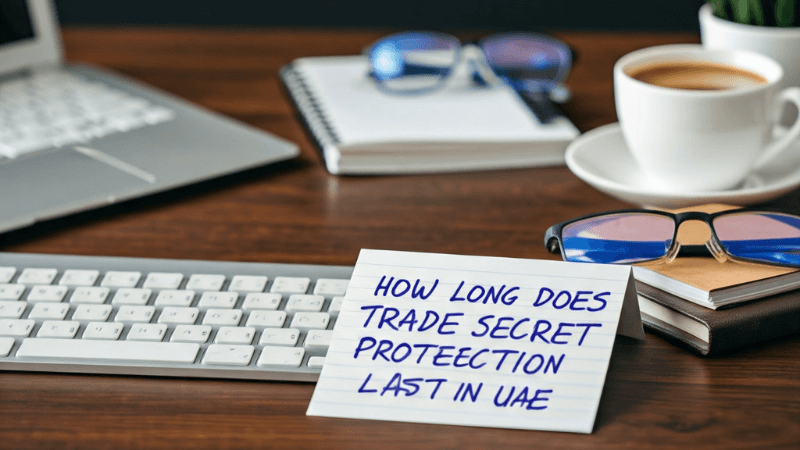
It’s key to know how long trade secret protection in the UAE lasts . It will help to safeguard proprietary information. Here’s a concise overview:
1. Indefinite Protection Based on Secrecy
Trade secrets can be protected indefinitely, provided the information remains confidential. Businesses must keep their information secret and valuable. They must take steps to prevent its disclosure.
2. 5-Year Protection for Certain Industries
In industries like pharmaceuticals and agriculture, trade secrets are protected for 5 years. This includes drug formulas and pesticide compositions submitted to authorities. This safeguards the information from unauthorized disclosure or use during this period.
3. Protection ends when information becomes public.
If a trade secret becomes public, protection ends. This can happen through publication, discovery, or legal disclosure. Confidentiality is the cornerstone of trade secret protection.
4. Loss of Commercial Value
Protection ends if the information loses its value. This can happen if a product is no longer in demand or becomes obsolete.
Example
For instance, a UAE company develops a pesticide formula as a trade secret. If kept confidential, it enjoys indefinite protection. However, if submitted for regulatory approval, the formula is protected for 5 years. After this period or if disclosed publicly, protection ends.
Businesses can protect their proprietary information. They should keep it confidential and follow UAE trade secret laws.
What Actions Are Considered Fair Under UAE Trade Secret Laws?
Not all actions involving trade secrets conflict with fair business practices. The following scenarios are considered acceptable under UAE trade secret laws:
- Using Publicly Available Information: Getting information from public sources.
- Independent Testing and Analysis: Discovering information through testing, experimentation, and analysis of market products.
- Independent Research and Development: Gaining information from independent research, innovation, invention, and development.
- Using Industry-Known Information: Using information that is widely known, available, and shared among industry professionals.
By understanding these rules, businesses can comply with UAE trade secret laws. They can also maintain ethical practices.
7 Best Practices to Protect Trade Secrets in the UAE
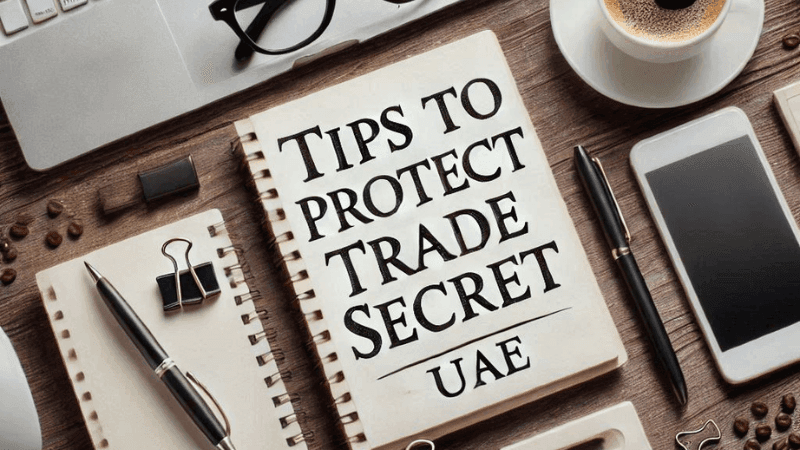
To protect a trade secret in the UAE, the owner must keep the information confidential. These measures should consider the information’s nature and its context.
Here are the seven best practices for protection of trade secrets in the UAE:
1. Secure Storage:
Keep secret documents or media out of view of unauthorized people (not viewed by others without permission).
2. Workplace Management
Arrange the workplace to prevent employees from seeing undisclosed information.
3. Controlled Access:
Only allow third-party visits with prior permission. Ensure that someone supervises the visits.
4. Restricted Visits:
Prohibit visit programs that might expose undisclosed information.
5. Employee Contracts:
Employment contracts must prevent employees from disclosing or using confidential information. This applies during and after their employment. They need permission to share information.
According to Article 10 of the UAE Labour Law, if a worker learns about the employer’s clients or work secrets, the employer can make them sign a non-competition agreement. This means the worker cannot compete with the employer after their contract ends.
6. Third-Party Agreements:
Include non-disclosure terms in agreements with third parties. Require permission to use or disclose information during and after the agreement.
7. Licensing Contracts:
All parties to the licensing contract must keep the information secret before sharing it.
FAQs About Trade Secrets Protection in the UAE
A trade secret is any confidential information that gives a competitive edge. This includes recipes, processes, and business strategies.
The UAE’s Industrial Property Law protects trade secrets. They must be confidential and have commercial value.
If someone misuses your trade secret, report it to the authorities. Then, seek a lawyer to file a claim.
Yes, as long as the information remains secret and the owner takes reasonable steps to protect it.
Yes, but only with authorized individuals under confidentiality agreements to prevent misuse.
Conclusion
Trade secret protection in the UAE is essential for maintaining a competitive advantage. The UAE’s laws provide strong protection. But, businesses must implement security measures to safeguard their trade secrets.
If you need help with protecting your trade secrets, consult legal experts who specialize in trade secret protection in the UAE. Remember, a well-guarded secret is the key to a successful business.
Disclaimer:
I wrote this article based on my research and deep analysis of UAE trade secret laws. I aim to be accurate and thorough. For advice on protecting trade secrets in the UAE, consult legal experts or authorities. This article is not legal advice and should not replace professional consultation.

